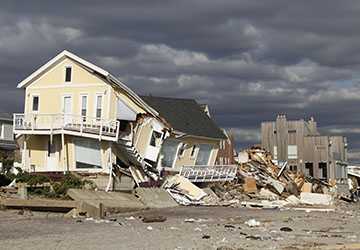5 Common Mistakes to Avoid When Making an Insurance Claim and How to Fix Them
Are you filing an insurance claim? The process can be very confusing, and even the slightest mistake can result in your claim being denied or your payout reduced.
Many people need help understanding their insurance policies, gathering necessary documentation, and communicating effectively with their insurance companies. Don't worry—we're here to help.

This blog post explores five of the most common claims mistakes and provides easy-to-understand tips on avoiding them. Are you ready? Let's start.
5 common mistakes to avoid when making an insurance claim
Here are the five most common mistakes people make when filing a claim. We also provide practical tips for avoiding them.
Mistake #1: Not understanding your policy
Failure to thoroughly read and understand your policy before filing a claim can lead to surprises. For example, you may find that certain damages require coverage or that your deductible is higher than expected.
To avoid this mistake, read your policy in detail. Pay attention to what is covered and what is not and what limitations or deductibles apply. If anything needs to be clarified, contact your insurance agent and ask.
Always remember the importance of knowledge. The better you understand your policy, the more likely you will have a successful claim.
Mistake #2: Inadequate documentation
Another mistake you may make is not adequately documenting your losses and resulting expenses. The more evidence of loss and damage you have, the less likely your insurance company will deny your claim or award you compensation.
Take photos and videos of affected areas, attempted restorations, shelters, etc. Additionally, keep all receipts documenting your expenses during and after the disaster.
It covers repairs, temporary accommodation, labour and turnover costs if you cannot work. It would help if you were more thorough and did not slack off.
Mistake #3: Delay in filing a claim
Most people hesitate to file a claim. Whether they have a busy schedule or believe the damage is minor, the longer they wait, the harder it will be to gather the evidence needed to support it.
Insurance policies often have a deadline for filing a claim, so you want to make sure you get it.
Even if you are unsure of the extent of the damage, it is best to start acting early and provide additional evidence to the adjuster later if necessary.
Don't become a victim of fear. File a lawsuit now to seek justice and stay safe.
Mistake #4: Failure to mitigate further damage
After the accident, you failed to take reasonable steps to protect the property from further damage. If you don't do this, your insurance company may have the right to deny your application or reduce your payment.
To avoid this mistake, immediately prevent additional losses beyond those stated. For example, if a storm damaged your roof, cover it with plastic sheeting.

If a water pipe breaks, turn off the water before a flood or other situation occurs. Your insurance company thinks you acted wisely. Don't let them down.
Mistake #5: Not communicating with your insurance company
Finally, ensure appropriate and regular communication with your insurance company throughout the claim process.
Communication will undoubtedly lead to many positive outcomes, including delays and claim denials. Respond promptly to requests for additional information or documents, and do not hesitate to clarify anything you may not understand.
Keep detailed records of all your conversations, including what was discussed, with whom and when.
Not only can misunderstandings derail you, they can take a long time to resolve. Feel free to discuss this issue now.
Take action now to protect your claim
This guide will give you the knowledge and tools to avoid common mistakes when filing an insurance claim.
Be sure to wait until the last minute; the sooner you use these tips, the better prepared you should be to file a claim.
Take the time now to review your policy, document everything carefully, file a claim as soon as possible, mitigate losses and communicate clearly with your insurance company.
A successful insurance claim can ultimately mean the difference between compensation and further losses. This is the key to ensuring your wealth, finances, and peace of mind. Don't let common mistakes hold you back.





